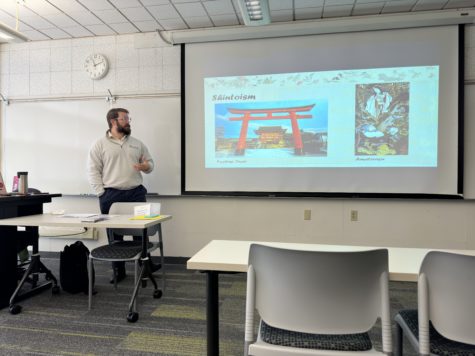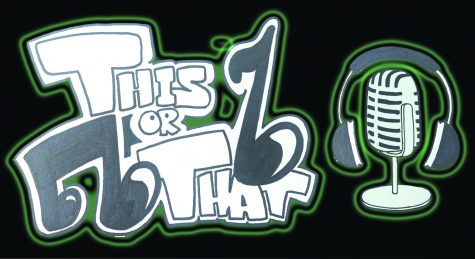News fell victim to speed and money
‘Faster’ is a short read, but too long for most
September 3, 2019
James Gleick’s book, “Faster,” tracks technology through time and weaves a tale of the havoc wreaked on humanity in speed’s ever-quickening wake.
When “standard time” became a commodity 100 years ago, the ties that bound humanity turned from railroads tracks to tick-tock clocks. Humans became enslaved to their wristwatches, technology and capitalism.
“Faster” describes time’s speedy progression in terms of dehumanization and dysfunction. Capitalism raked in the profits
to the detriment of the natural environment and the biological bodies being forced to keep up.
Mastering a craft takes time. Journalists are craftsmen: wordsmiths. Their objective is to serve the public by accurately describing and distributing the truths they obtain. The quartz- clock frequency is 215 cycles per second – too quick for critical thinking and polish to be applied to their efforts.
“Assembly-line efficiency is … stripping craftsmen of autonomy,” writes Gleick. Ergo, wrist-watches function more as shackles than time-keepers or bling.
In order for history to become a living perspective, both time and space are needed to document and absorb information from data. “Researchers in time- compressed speech, discovering hidden punctuation in the pauses that dot our conversation, found that intelligibility declines as the pauses are removed,” says Gleick. … “We routinely absorb sequences of shots lasting eight frames, a third of a second, or less,” writes Gleick. “It’s an impression … resonating just below the threshold of comprehension.”
Capitalists don’t seem to care about intelligibility. “Every source of delay could be another business opportunity,” says Gleick. When newsrooms are pushed to the limit and dollar signs are the bottom line, words are symbols without a tangible anchor to reality.
“The more journalists hear, the more they feel able – even obliged – to keep talking and writing,” says Gleick. 24-hr news networks came onto the scene circa 1980, and their authority was undermined as the pressure to produce more content more often increased.
“Faster” was released in 1999, and in it, Gleick made a prophetic statement. “As the flow of information accelerates, we may have trouble keeping track of it all.”
Gleick’s prediction has come true. It appears that humanity has given up on attributing meaning to words. According to an article in the “Weekly Standard” in December 2018, The American Heritage Dictionary’s Usage Panel was disbanded, which means that they are no longer tracking the changing tides of human tongues, and I haven’t seen anyone picking up the torch.
Adding insult to injury, on May 3, 2019, a revision to the Associated Press style was announced on Twitter that removed “(sic)” as an indication of a grammatical or contextual error, effectively allowing chaos and personal preference to tow the line of linguistics in any direction, instead of drawing them around a Latin word meaning “thus.”
Vocabulary obsolescence comes faster and faster. How soon did we lose track of what “fake news” meant? No one knows, because critical thought can’t happen in the time it takes to tap a screen.
“We are reaching the level of distillation of an abridgement of a sampler of a ‘Reader’s Digest’,” writes Gleick. That was in 1999, before Facebook and Twitter were invented.
I think it’s fair to say that things have gotten worse in the past 20 years. Social media actively discourages lingering on a thought long enough to digest it – just long enough to click “like” and move on – and social media has become the dominant means of consumption of words.
Consumption, but not digestion, en masse. “It might be best to think of the one-minute news report as an art form that takes terseness and concision to the limit, kin to the haiku,” writes Gleick.
FAST-FOOD FOR BABEL
(haiku, by Krissy Tobey)
What’s the news today?
Nonsensical verbiage.
Why even bother?
Why bother? If you don’t bother, who will? Do words matter?
Does wisdom take time to manufacture?
Both “fake” and “news” are words that have been warped by light-speed technology and misuse, but the future must necessarily be built on the past. If we are moving too fast to keep track of the present, what does that mean for tomorrow?










